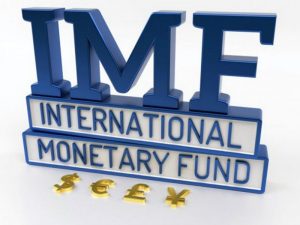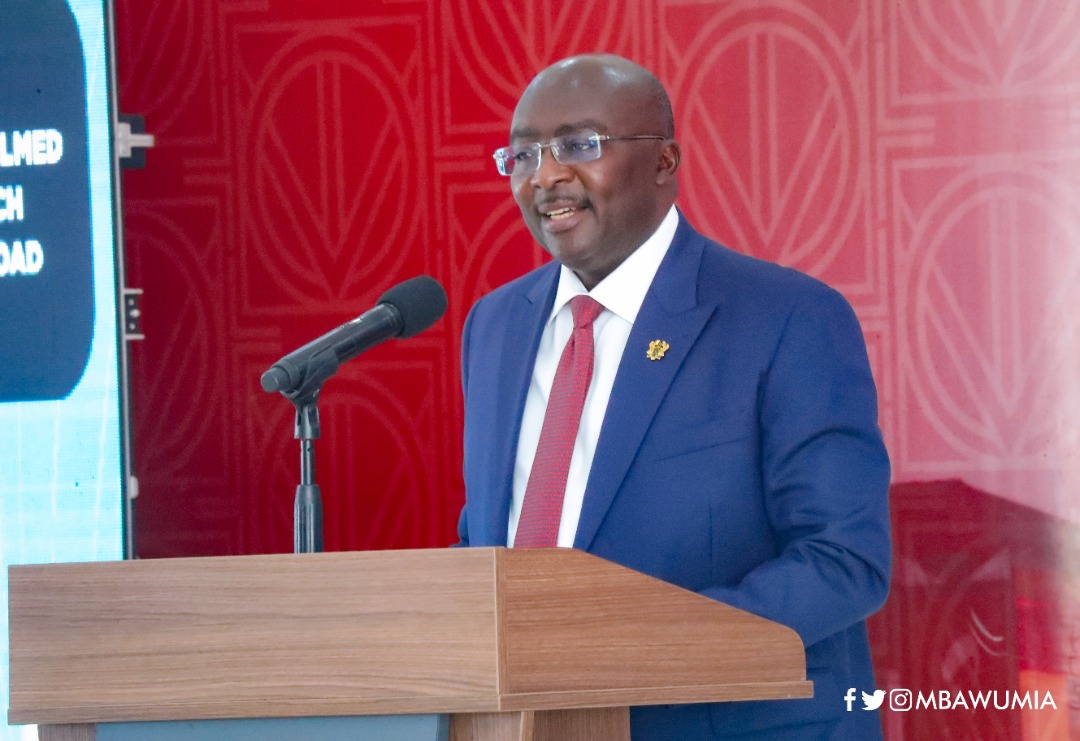
The Vice President, Dr. Mahammudu Bawumia, is confident Ghana will go through the programme with the International Monetary Fund (IMF) and come out even stronger than the previous 17 programmes. According to him, the government was dramatically changing systems through digitalisation, which would transform the structure of the economy.
As such, “With enhanced fiscal discipline and structural reforms to restore debt sustainability and growth, we should emerge stronger than we have with the previous 17 IMF programmes,” Veep remarked.
Dr. Bawumia was speaking at the Accra Business School yesterday on the theme; ‘The role of Information Technology Education in the government’s digitalisation agenda.’
WHY IMF?
The Vice President’s address broke his long silence on the government’s decision to seek support from the IMF. Commenting on the subject, Dr. Bawumia, who heads the Economic Management Team of the country, opined that the government had to seek support from the IMF, because Ghana “has been hit by a quadruple whammy in the last few years.”
He mentioned these as the Energy Sector Excess Capacity Payments, costing GH¢17 billion, relating to the legacy of a take or pay contract; the Banking Sector Clean-Up which cost GH¢25 billion; COVID-19 which cost GH¢12 billion spent in 2020 and 2021; and the Russia- Ukraine war.
He told the gathering at the event that if the fiscal impact of this quadruple whammy was taken out, “Ghana will not be going to the IMF for support, because our fiscal, debt and balance of payments outlook would be sustainable.”
He explained that of the four factors, two (COVID-19 and the Russia Ukraine war) were external, and the other two (the banking sector clean up and the excess capacity payments) were the result of policies of the previous government.
DIFFERENCE
The Vice President observed that Ghana had gone to the IMF for a programme 17 times since independence, and after each IMF programme, the underlying system and structure of the economy remained the same.
However, he further added subtly, differentiating the current IMF move from the previous ones that, after each of the 17 IMF programmes: “Ghana had no National ID Card; No functioning National Digital Property Address System, only 30% of the adult population had bank accounts, inefficiency, bribery and bureaucracy at the ports.”
He continued to list that after each of the previous IMF programmes, there was no digitisation at the Passport Office, Driver and Vehicle Licensing Authority (DVLA) and Births and Deaths Registry, no motor insurance database, no credit scoring by credit reference agencies.
He continued that less than 4% of the population had tax identification numbers, there were no drones to deliver medical supplies, no Universal QR Code Payment System, no national scale E-Pharmacy, and no Unified Common Platform for Property Taxation, among others.
IMF CONFIRMATION
In a related development, the IMF staff who visited the country for discussions had since left.
Leaving the country, the team issued a statement in which it confirmed that the COVID-19 pandemic and the Russia-Ukraine war had worsened the economic crisis of the country.
Mr. Carlo Sdralevich who led the IMF team, issued the following statement: “Ghana is facing a challenging economic and social situation amid an increasingly difficult global environment. The fiscal and debt situation has severely worsened following the COVID-19 pandemic. At the same time, investors’ concerns have triggered credit rating downgrades, capital outflows, loss of external market access, and rising domestic borrowing costs.
“In addition, the global economic shock caused by the war in Ukraine is hitting Ghana at a time when the country is still recovering from the Covid-19 pandemic shock and with limited room for maneuver. These adverse developments have contributed to slowing economic growth, accumulation of unpaid bills; a large exchange rate depreciation, and a surge in inflation.”
Prior to this statement the opposition National Democratic Congress had said the government could not blame its woes on the COVID-19 as huge sums of money came to it to save the situation.
According to the National Democratic Congress (NDC), the economy was already in tatters, but the pandemic only exposed the situation.
GROWTH STATISTICS
In 2019, the economy grew by 6.5 percent as compared to 6.3 percent in 2018. This growth sunk from 6.5 percent in 2019 to less than 1% in 2020 when the COVID-19 struck.
In 2021, the economy saw measures to rebound as it grew at about 4%, only to be affected again in 2022 by the Russia-Ukraine war.
Meanwhile, the Fund has reaffirmed its commitment to support Ghana at this difficult time, consistent with the IMF’s policies.








